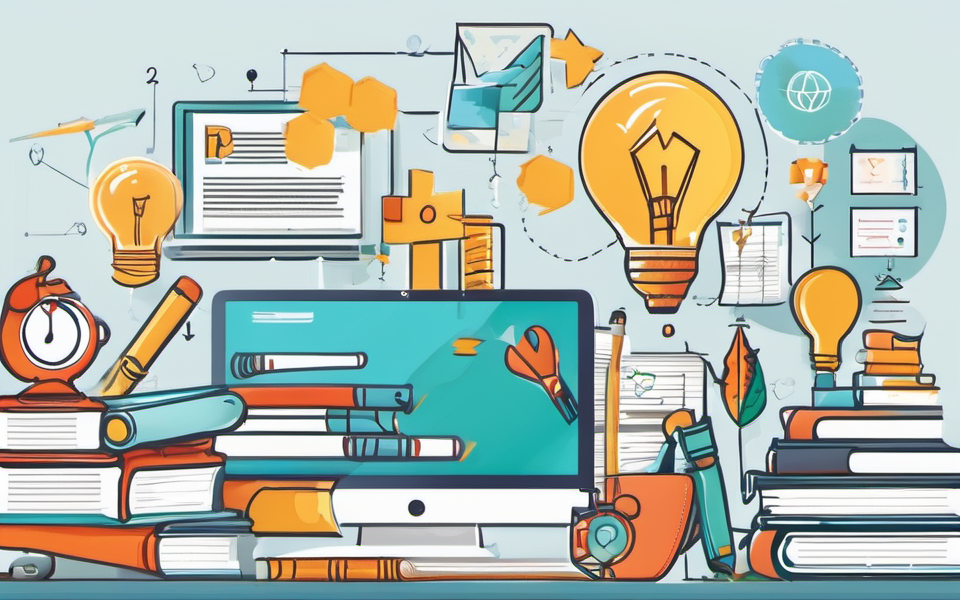Imagine a world where education is personalized, engaging, and accessible to everyone, anytime, anywhere. Sounds like a futuristic dream, right? But what if I told you that this vision is already unfolding, driven by the revolutionary forces of digital learning and online education? Get ready to step into a new era of learning, one that’s shaking up the traditional classroom and rewriting the rules of the game.
Breaking the Chains of Traditional Learning: Embracing Innovation and Digital Transformation
For generations, education has been synonymous with classrooms, textbooks, and standardized tests. But in a world dominated by technology and instant access to information, this model is rapidly becoming outdated. Digital learning platforms and online learning resources are providing a more dynamic, flexible, and engaging alternative. Think interactive simulations that bring history to life, virtual labs that explore complex scientific concepts, and personalized learning pathways tailored to individual needs. The traditional “one-size-fits-all” approach is being replaced by a diverse landscape where learners of all ages, backgrounds, and learning styles can thrive.
Redefining Educational Standards and Assessment in a Digital World
This shift towards digital learning isn’t just about convenience; it’s about fundamentally changing how we measure success. Gone are the days of solely relying on standardized tests. In their place are a broader range of assessments that capture a student’s progress, problem-solving skills, and real-world application of knowledge. Digital tools are enabling personalized learning plans and continuous assessment, providing a richer and more nuanced understanding of individual learning journeys. This personalized approach empowers educators to identify and address specific learning gaps, leading to improved educational outcomes.
The Rise of MOOCs and Microlearning : Democratizing Access to Knowledge
Massive open online courses (MOOCs) have revolutionized the concept of higher education, offering world-class learning opportunities to millions of learners globally. These courses cover a vast range of subjects, from computer science and business to arts and humanities. Furthermore, microlearning – bite-sized learning modules focused on specific skills and knowledge – is making it easier than ever for individuals to learn on their own time, at their own pace. Whether it’s brushing up on a forgotten language, learning a new coding language, or developing critical thinking skills, these platforms are providing individuals with the tools they need to succeed in today’s dynamic job market.
Navigating the Future: Regulation and Ethics in a Digital Learning Landscape
While the opportunities presented by digital learning are undeniable, it’s crucial to navigate this evolving landscape with responsible and ethical practices. This involves addressing concerns around data privacy, ensuring equitable access to digital tools and resources, and fostering a culture of responsible online interaction. Governments, educational institutions, and technology companies must work collaboratively to establish clear standards and regulations that promote ethical and inclusive digital learning practices.
Bridging the Digital Divide: Equity and Access in a Connected World
One of the most pressing challenges facing the digital learning landscape is ensuring equitable access for all learners. This means addressing issues of digital literacy, affordability, and infrastructure in underserved communities. Initiatives focused on expanding broadband access, providing affordable devices, and supporting digital literacy programs are critical in bridging the digital divide. Governments, NGOs, and private institutions must invest in bridging these gaps to create an equitable learning environment where every learner can benefit from the power of technology.
Key Takeaways
The landscape of education is being transformed by the rise of digital learning and online education. While these advancements offer incredible potential, responsible governance and ethical considerations are paramount. Here are some key takeaways for the future of learning:
- Embrace innovation: Digital learning is not a passing trend; it is the future of education. Embrace new technologies and learning platforms to enhance teaching and learning.
- Focus on personalized learning: Tailor instruction and assessment to individual needs and learning styles.
- Prioritize ethical considerations: Develop regulations that ensure data privacy, accessibility, and inclusivity in the digital learning landscape.
- Invest in digital literacy: Bridge the digital divide by expanding broadband access, providing affordable devices, and supporting digital literacy programs.
By working together, educators, policymakers, and technology innovators can shape a future where digital learning empowers individuals, closes educational gaps, and transforms lives. This vision is not just about adapting to change; it’s about embracing the future and making it work for everyone.




